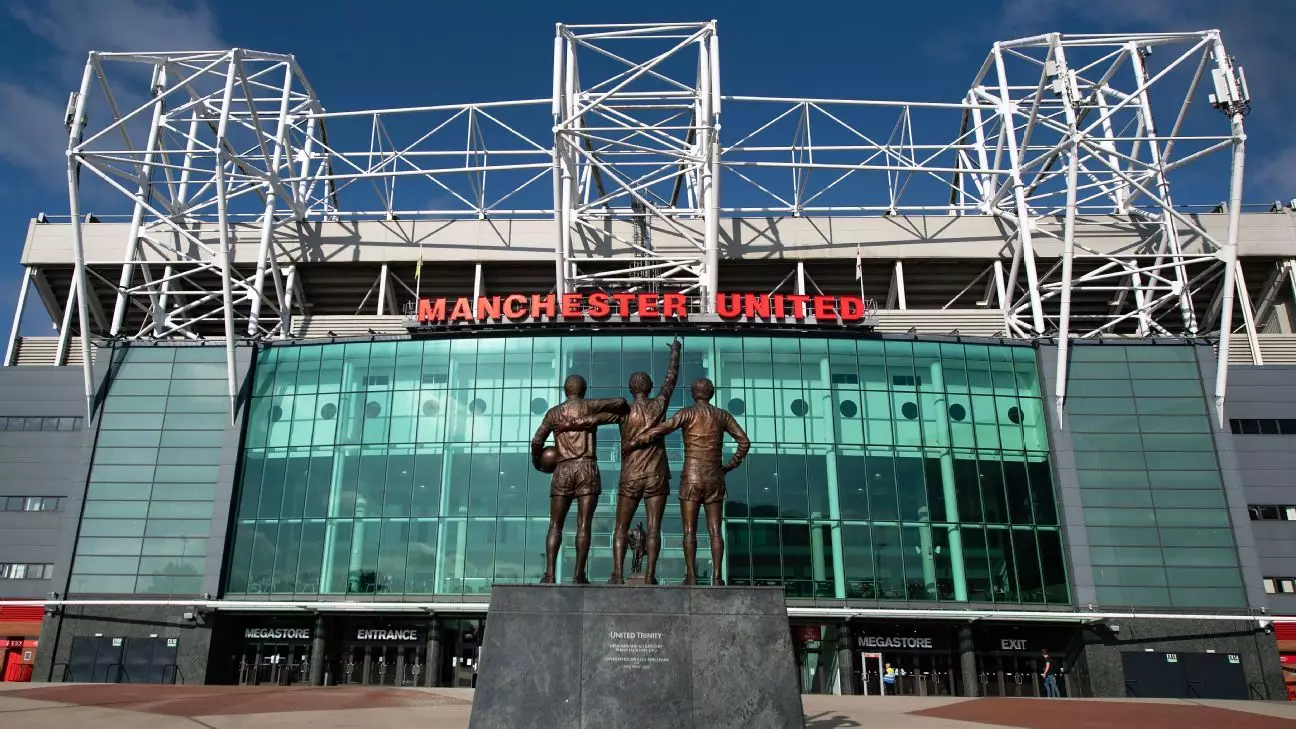In the ever-evolving landscape of professional football, managerial decisions can trigger a cascade of financial consequences, as demonstrated by the recent turmoil surrounding Manchester United. The dismissal of Erik ten Hag has not only altered the trajectory of the team’s immediate future but also raised significant concerns regarding its financial stability. A closer examination of the club’s quarterly financial reports unveils the complexities underlying this scenario, adding layers of depth to a narrative often oversimplified by sensational headlines.
Manchester United has been hit with a staggering compensation bill totaling £14.5 million ($18.2 million) linked to ten Hag’s exit and the departure of his coaching staff, including former sporting director Dan Ashworth. This financial blow serves as a reminder that managerial contracts can become double-edged swords; while they may indicate confidence in a coach’s capabilities, their termination can result in crippling severance costs. The decision to extend ten Hag’s contract mere months before his firing underscores a pattern of questionable operational decisions that have plagued United in recent years.
Compounding this financial burden is a startling £44.8 million decline in broadcasting revenue. Transitioning from competing in the lucrative Champions League to the less financially rewarding Europa League has severely limited the club’s income potential. Such stark contrasts in revenue highlight the critical importance of maintaining a competitive position within the Premier League, the primary driver of financial health for most clubs. A failure to secure a Champions League place for the foreseeable future could spell disaster for United’s finances.
In the wake of ten Hag’s dismissal and Ashworth’s abrupt departure after only five months, Manchester United has initiated a series of austerity measures. Reports indicate over 200 redundancies, a significant step for a club of such stature. The involvement of Sir Jim Ratcliffe’s INEOS group has prompted these drastic measures, emphasizing a shift towards economic realism in an era previously marred by lavish spending and inconsistency. However, this strategic pivot presents its own challenges; balancing cost-cutting with the need for investment in key areas remains a delicate equation for club management.
Despite the dire financial numbers, United’s CEO Omar Berrada remains optimistic, claiming the focus is on improving the league position amidst a precarious fifteenth place in the Premier League. The juxtaposition of discussing league strategies while simultaneously coping with substantial financial losses may appear contradictory, revealing the tension between ambition and reality that has come to define the club’s recent history.
While the men’s team grapples with its challenges, the performance of the women’s team offers a glimmer of hope for United’s supporters. Currently positioned second in the Women’s Super League, the women’s team has demonstrated resilience and success, gaining traction in competitions, including the FA Cup. This contrasting narrative raises questions about football investment priorities at the club. Should more resources be funneled into expanding the women’s program, given its success compared to the struggles of its male counterpart?
Moreover, the commitment to redevelop the Carrington Training Complex and the intention to enhance Old Trafford signifies a long-term vision that, if successfully articulated and executed, can lead to fruitful returns on investment. However, such projects require significant capital and coherent strategy amidst fluctuating revenue streams. The approval from the UK Government for regeneration projects suggests potential external support could help mitigate some financial strain, but the club will need to convert ambition into concrete results.
The Manchester United Supporters Trust (MUST) has vocally criticized the rising tensions between club management and fan expectations. Its assertion that increasing ticket prices would be “futile and counterproductive” underscores a deep-rooted discontent among the fanbase regarding financial mismanagement. The argument that supporters shouldn’t bear the brunt of crippling debt interest reflects a keen awareness of the larger institutional failings that have led to the club’s current predicament.
As the narrative unfolds, the challenge for Manchester United will be effectively communicating its strategies and plans to enhance engagement with loyal supporters. Fans represent the lifeblood of the club, and fostering a collaborative relationship is imperative for navigating the ongoing storm.
The intersection of managerial turnover, financial strain, and fan sentiment characterizes a crucial moment for Manchester United. The journey ahead will require transparent communication, strategic investment, and a commitment to cultivating success on the pitch while ensuring financial stability off it. Failure to address these critical issues may lead to longer-lasting implications for a club once revered as a titan in both English and global football.

